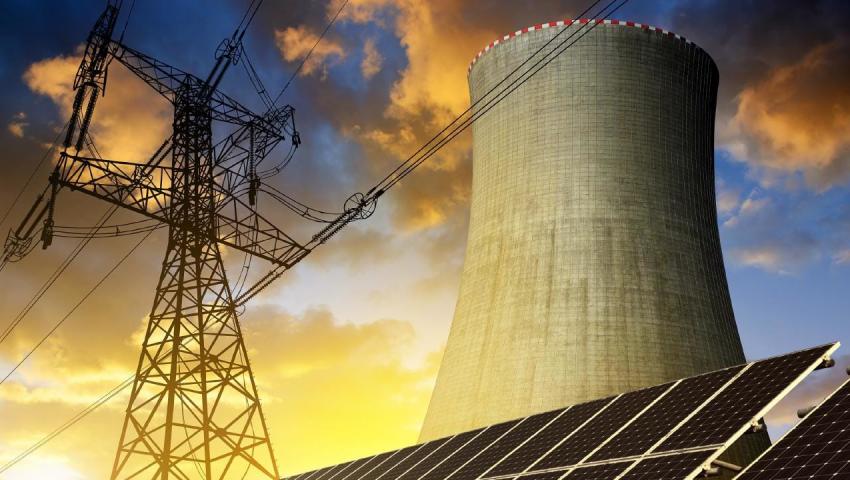The EU Recovery Fund will not invest in fossil fuels
Methane is the next step in reducing harmful emissions and there will be legislative initiatives next year, Brussels promises

By Georgi Velev
Investments in fossil fuels will not be supported by the EU Recovery Fund. The European Parliament's Environment Committee has voted to exclude fossil fuels from the € 750 billion fund, Euractiv reported. The proposed resolution was adopted by 65 votes to 15, with 3 abstentions, according to the results of the vote. Parliament's two leading committees on economic and budgetary issues will vote on the proposed EU reconstruction fund in early November, with a final vote expected in plenary by mid-November, the paper said.
Pascal Canfin, a French centrist MP who chairs Parliament's Environment Committee, was the main author of the resolution. On Twitter, he welcomed the vote, saying it "paves the way for a real green recovery" from the coronavirus crisis. "I will fight for this position to have a majority" in the plenary of the European Parliament. There can be no funding for fossil fuels, because we are investing in the future, not the past, Kanfin said.
In July, EU leaders agreed on a € 750 billion recovery fund to help the EU economy get back on its feet following the closure of EU economies during the COVID-19 pandemic. The European Parliament and EU Member States have launched a voting process to agree on the fund and agree on spending rules.
At the same time, the EC has chosen a "holistic" approach to tackling the effects of methane on global warming, focusing on international co-operation first before regulating emissions in sectors such as energy and agriculture next year. Methane is also part of fossil fuels, but significant amounts of it are released in the livestock sector.
The EC's methane strategy was unveiled on Wednesday, but Brussels has refused to impose immediate measures forcing energy companies to detect and eliminate methane leaks in the oil and gas supply chain, even though they are the easiest to deal with.
Due to the major problems that methane creates in the fight against global warming, this gas is considered a priority in the European green deal, which seeks to reduce harmful emissions in Europe to zero by 2050. “To achieve the European climate target by 2030 for emissions reduction by 55%, we will have to reduce methane by a third," said Kadri Simson, EU energy commissioner. And although agriculture - especially livestock - is the largest emitter of methane, "in the energy sector we can reduce them the fastest and cheapest," Simson told the media.
"The most cost-effective methane emission savings can be achieved in the energy sector," the EC said, noting that "oil and gas operations along the entire production chain usually have different mitigation options, with no net costs or almost zero costs.“
Major oil and gas companies such as Shell have already set targets for reducing methane emissions and have called on EU politicians to set "strong methane regulations" to close leaks in their production processes and reduce emissions.
However, the Commission says that it would be too early now to apply legally binding measures. "We need to be aware that today's measurement and reporting standards are not entirely accurate," said an EU official.
Instead, the Commission said it would seek to make the reporting and verification of methane emissions more systematic at UN level as a first step to pave the way for the implementation of the provisions at a later stage.
Also, "in 2021, the EC will present legislative proposals for mandatory measurement, reporting and verification of all energy-related methane emissions and for an obligation to improve the detection of leaks and the elimination of leaks throughout the fossil gas infrastructure," is explained in a statement from Brussels.
This was rejected as insufficient by the green parties in the European Parliament, which called for clear goals and objectives for reducing methane emissions.
"The European Commission is just scratching the surface and limiting itself to minor problems such as methane leaks and statistics. Counting emissions does not help when reducing them is on the agenda, "said Utah Paulus, a German Green MP.
There is currently no independent international body to collect and verify methane emissions data. To fill this gap, the Commission proposes to set up an international methane emissions observatory, "responsible for collecting, coordinating, verifying and publishing data on anthropogenic methane emissions at the global level", under the auspices of the UN. The EU's contribution to this new body could come in the form of data collected from Earth observation satellites under the Copernicus space program, the Commission suggests.
"We have calculated that if we can reduce global emissions of man-made methane by 50%, then we can reduce the temperature rise by 0.18 ° C. So this will be important when we reach a maximum of 1.5 ° C ", the EC official told the media.
The gas industry welcomes the Commission's cautious approach to methane, stating that a wide range of actions are already being taken through the Methane Guidelines - a voluntary initiative of gas companies.
"The Commission's focus on improving the availability and accuracy of methane emissions data through measurement and quantification is the right and responsible action to be taken," said James Watson, Secretary General of the Eurogas Trade Association.
The lack of investment in fossil fuels through the Recovery Fund, as well as the intentions for stricter methane regulations, will be significant and may even stop a number of gas projects. Here we are talking about the development of interconnectors, a new gas distribution network and more problems for oil companies and oil refineries, experts explain. At a later stage, this EU strategy is quite likely to lead to a change in fuel prices for consumers - both at gas stations and for consumers of natural gas in households and businesses.
